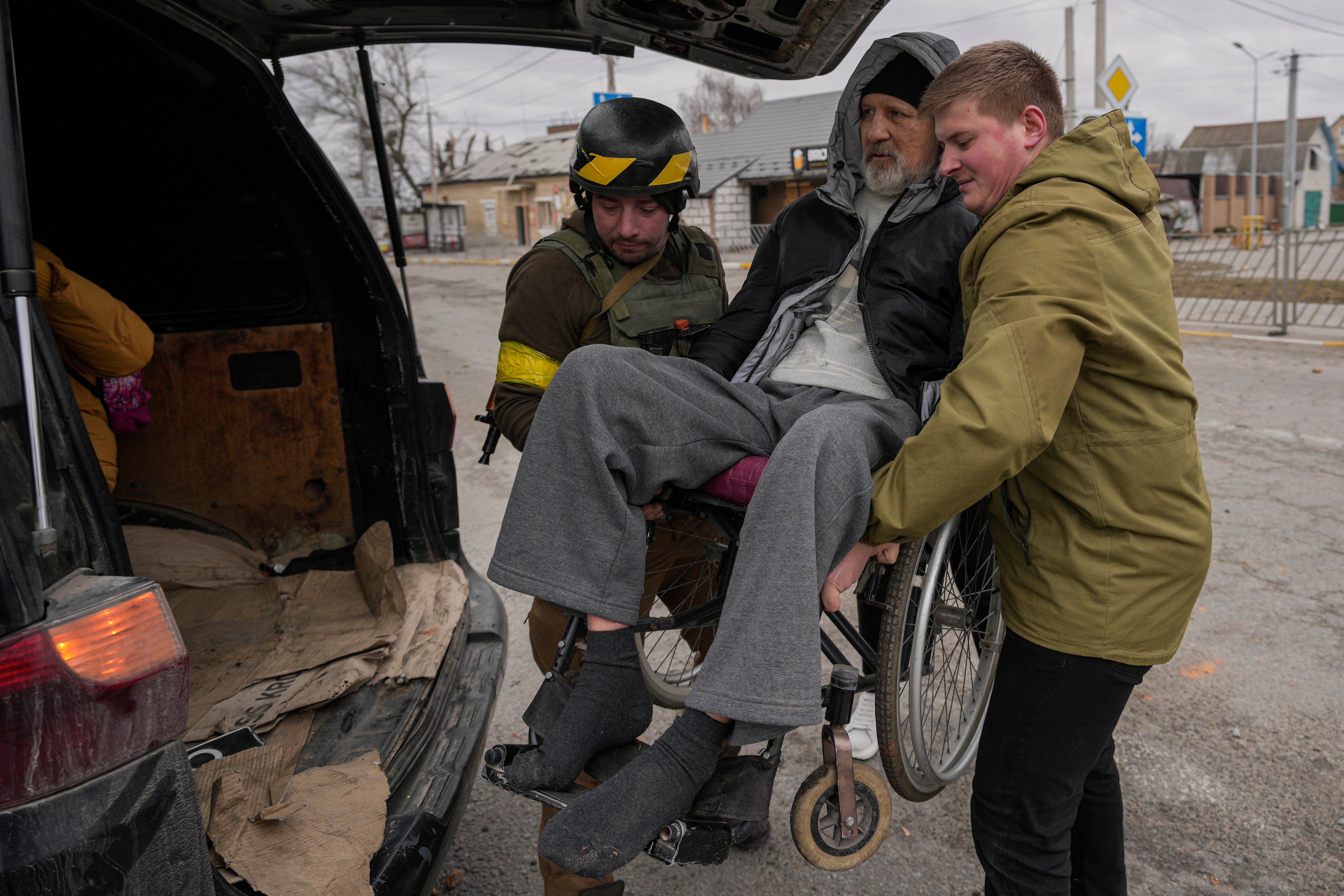Have you thought about how disabled Ukrainians are coping in this horrific war?
How do you navigate rubble-strewn streets – with no means of avoiding the sharps scattered everywhere, or the vast boulders, or the pits, or the heaps of debris – in a wheelchair?


The order contained seven medications. I won’t bore you with the details. Suffice to say that a type 1 diabetic – where the immune system eats one’s insulin-producing cells so cannot be controlled by diet – like me requires a lot of drugs just to stay alive.
I also require relief from chronic pain which, along with partial paralysis and other entertainingly challenging impairments, are part of the lingering after effects of being run over by a lorry.
Living with disabilities is never easy. But at least getting hold of your meds usually is in Britain. Scoot over to NHS Patient Access, input the order, and a text will hopefully arrive from the pharmacy. This has been somewhat complicated of late. The syringes I use have been proving hard to obtain.
Poorly thought-out guidance from NICE – the National Institute for Health & Care Excellence – has also greatly complicated life for pain sufferers. I know of people who have been denied medication and are dealing with what amounts to torture as a result of it.
These are not, as you may realise, “first world problems”. There is no such thing as a first world problem if you have disabilities and/or health conditions. Every day can feel like a sisyphean struggle. And yet, looking at the horrific pictures of Ukraine’s bombed out cities that confront us every day, they sometimes start to feel that way.
How do you navigate rubble-strewn streets – with no means of avoiding the sharps scattered everywhere, or the vast boulders, or the pits, or the heaps of debris – in a wheelchair? What do you do if your supplies of medication are running low? You improvise. Agonise. Suffer.
Improvising is something that most of us in my community have probably done at some point. Maybe there’s been a glitch in supply, or an outbreak of forgetfulness. It happens, so you re-use. Needles, I mean. You aren’t supposed to. It’s dangerous. It carries the risk of infection every time it is done. But most of us have done it at some point. It’s one of those things T1s talks about in private conversations without telling doctors or diabetic nurses.
Insulin running low and fresh supplies erratic, if available at all? That I’ve never experienced, but I imagine it means missing shots. And maybe missing meals to avoid catastrophically high blood sugars, which attack the eyes, kidneys, liver – you name it. A scientist might baulk at the analogy, but think of it like injecting a corrosive chemical into your bloodstream.
Here’s a hard truth: it isn’t just in the world’s conflict zones that this happens. It happens in the “developing” world and the “developed” world. It happens in America, even to people with workplace health plans, as a result of expensive co-pays. The price of insulin has rocketed and no one seems to be much interested in addressing the issues, such as profiteering by drug companies, responsible for it.
To keep up to speed with all the latest opinions and comment, sign up to our free weekly Voices Dispatches newsletter by clicking here
Some commentators have sneered at Britons’ “religious” devotion to the NHS. The above explains why we who rely on it tend to react to them with short, sharp rejoinders. But our problems, and our very real fears, still pale by comparison to those living in the war zone created by the sick ambition of the gangster in the Kremlin. Few enough of their stories have been told in the flood of them pouring out from it.
Julia Watts Belser, an academic and activist, writing for Truthout, argued that disabled people caught up in disasters tend to be used either to sell stories of “triumph over adversity” or as visible embodiments of tragedy. Natural victims. She also railed against the chilling concept of “expected losses”. She highlighted the disturbing idea some people have that “some folks simply aren’t cut out to survive (disasters)”.
Organisations like the Partnership for Inclusive Disaster Strategies are working to change that. It has never worked in a conflict zone before, but has partnered with the Ukrainian disability rights organisation Fight for Right in an attempt to assist the conflict’s forgotten victims.
The war is making many of us with disabilities feel suddenly and acutely vulnerable. But as Anna Landre, who has been volunteering for the organisation, and is herself disabled, says: “I want to say doing this, the 16-hour days, is emotionally, mentally and intellectually exhausting but I’m not going through hell when you think of what’s happening out there.”
I hate to belabour the point, but it bears repeating: getting out of the conflict zone is where your problems may be just beginning. Imagine going through the nightmare of trying to escape Ukraine with a disability, and then being asked to queue in the freezing cold at a UK embassy to tick Priti Patel’s thousand and one boxes, if the UK is where you are hoping to seek refuge.
As with Covid, this dreadful conflict is brutally exposing the fragility of disability rights everywhere. It is highlighting the need to fight for them, on a global scale. We are not, and should never be, “expected losses”.

Join our commenting forum
Join thought-provoking conversations, follow other Independent readers and see their replies